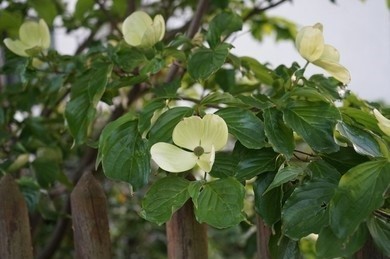Cornaceae Plant Tissue Culture
 A flowering tree species of the family Cornaceae
A flowering tree species of the family Cornaceae
We have established a well-established system for tissue
culture and plant regeneration of Cornaceae plants, which can
obtain high-quality non-toxic seedlings in a short period and can
also use cell culture to the production of secondary metabolites.
Cornaceae are deciduous trees or shrubs, sparse evergreen or herbaceous, and belong to the subclass Rosidae. There are 15 genera and about 119 species worldwide, distributed in tropical to temperate zones and circumpolar regions of the Northern Hemisphere on all continents, with the largest number in East Asia.
Cornaceae are trees with tall, upright trunks, broad crowns, lush foliage, high branching, rapid growth, and long life, making them suitable as roadside trees.
Some of the plants in this family are valuable herbs containing glycosides, organic acids, tannins, sugars and inositol, alkaloids, vitamins, amino acids, mineral elements, and other components. It has antibacterial and anti-inflammatory, hypoglycemic, hypolipidemic, anti-shock, cardiotonic, anticancer, anti-aging, and immunity-boosting effects.
Tissue culture service
Its traditional propagation methods include seed propagation and asexual propagation such as cuttings and grafting. Lifeasible uses tissue culture technology to propagate Cornaceae plants not only to effectively overcome its traditional nursery defects but also to breed asexual seedlings that can maintain the excellent traits of the parents. Our plant tissue culture service can be applied not only in the rapid propagation of Cornaceae plants but also in the conservation of their germplasm resources.
Some of the Cornaceae plants that have been successfully grown by tissue culture techniques
- C. capitana var. emeiensi
- C. alba
- T. angulata. var. intermedia
- B. controversum
- D. hongkon-gensis
- C. stolonifera
- C. officinalis
- C. florida
- D. tonkinensis
- D. elegans
- S. wilsoniana
- Direct organogenesis pathway
Lifeasible has used stem tips and stem segments with buds as explants for most plants of mountain Cornaceae to obtain regenerated plants through the direct organogenesis route, and the plants obtained in this way have little genetic variation and can maintain the characteristics of the parents.
- Healing tissue induction pathway
Lifeasible often uses leaves, stem tips, stem segments, receptacles, flower stalks, and terminal buds as explants for the induction of healing tissues. The induction rate is 100%, and the induced healing tissues are cultured for proliferation, and adventitious shoots can be differentiated after massive proliferation.
- Somatic embryogenesis pathway
Lifeasible selects the most suitable immature explants for somatic embryogenesis induction.
You want to sign a confidentiality agreement.
You have a specific plant species for your experimental needs.
You have a reliable and relevant cooperation project to discuss.
You are very interested in our project or have any questions.
You need an updated and detailed quotation.
For research or industrial use.

 A flowering tree species of the family Cornaceae
A flowering tree species of the family Cornaceae
